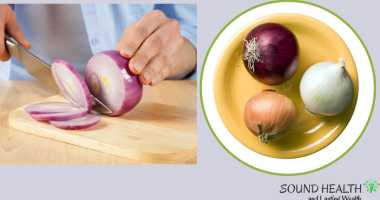A sore throat can be an annoying and painful experience, often making it difficult to eat, drink, or even speak. While many people reach for over-the-counter medications at the first sign of discomfort, there are effective home remedies that can provide relief without the need for pharmaceuticals. Understanding the common causes of sore throats, exploring the most effective home remedies, and knowing when to consult a healthcare professional are crucial steps in managing this condition.

Common Causes of a Sore Throat
Sore throats can arise from various factors, with the most prevalent being infections. These can be categorized into viral and bacterial causes:
- Viral Infections: The majority of sore throats are caused by viruses such as the common cold, influenza, COVID-19, and mononucleosis. These infections usually resolve on their own within a week.
- Bacterial Infections: Less commonly, sore throats may be due to bacterial infections like strep throat, which requires medical treatment. Other bacterial causes include tonsillitis and certain sexually transmitted infections.
- Environmental Factors: Allergens like pollen or dust, dry air, smoke, and pollution can irritate the throat. Additionally, excessive talking or shouting can lead to strain and soreness.
- Other Causes: Conditions such as gastroesophageal reflux disease (GERD) or tumors can also present with throat pain. If symptoms persist or worsen, it’s essential to seek medical advice.
Understanding these causes can help in choosing appropriate home remedies and recognizing when professional care is necessary.
The Top Home Remedies for a Sore Throat
Home remedies can be an effective way to soothe a sore throat without resorting to medication. Here are some of the most recommended options:
#1. Saltwater Gargle
Gargling with warm salt water is one of the simplest and most effective remedies. It helps reduce swelling and kill bacteria in the throat. To prepare:
- Mix 1/2 teaspoon of salt in a glass of warm water.
- Gargle several times a day for optimal results.
#2. Honey
Honey is not only delicious but also has antibacterial properties that can soothe irritation. It can be taken alone or mixed with warm water or herbal teas. However, honey should not be given to children under one year due to the risk of botulism.
#3. Herbal Teas
Drinking warm herbal teas like chamomile or peppermint can provide comfort and relief due to their anti-inflammatory properties. Chamomile tea also has antioxidant effects that may help boost your immune system.
#4. Lozenges and Hard Candies
Sucking on throat lozenges or hard candies stimulates saliva production, which keeps the throat moist and eases discomfort.
#5. Humidifiers
Using a humidifier adds moisture to the air, which can soothe dry throats caused by environmental factors. This is particularly useful in winter months when indoor air tends to be dry.
#6. Apple Cider Vinegar (ACV)
Diluting ACV in water (1-2 tablespoons in a cup) and gargling may help kill bacteria and soothe irritation. However, it’s important to rinse your mouth afterward to protect your teeth from acidity.
#7. Ginger Tea
Ginger has natural anti-inflammatory properties that may help relieve pain and irritation in the throat. Boil fresh ginger slices in water for about 10 minutes to make a soothing tea.
These remedies are generally safe and can provide significant relief from sore throat symptoms without needing over-the-counter medications.
Home Remedies for a Sore Throat: When to See a Doctor
While many sore throats are benign and self-limiting, certain symptoms warrant medical attention:
- Persistent Symptoms: If your sore throat lasts longer than a week without improvement, it’s advisable to consult a healthcare provider.
- Severe Pain: Intense pain that makes swallowing or breathing difficult should be evaluated promptly.
- Fever: A high fever (above 101°F) accompanying a sore throat could indicate a bacterial infection that may require antibiotics.
- Rash or Swelling: The presence of skin rashes or swelling around the neck may suggest more serious conditions that need immediate care.
- Difficulty Breathing: Any trouble breathing or swallowing should be treated as an emergency.
By recognizing these signs early on, you can ensure timely treatment and avoid complications associated with untreated infections.
In conclusion, while over-the-counter medications can offer quick relief for sore throats, numerous effective home remedies exist that not only alleviate symptoms but also promote healing. Understanding when to seek medical advice is equally important in managing this common ailment effectively.
Also Read | Say Goodbye to Gas Pain: Top Tips for Fast Relief










